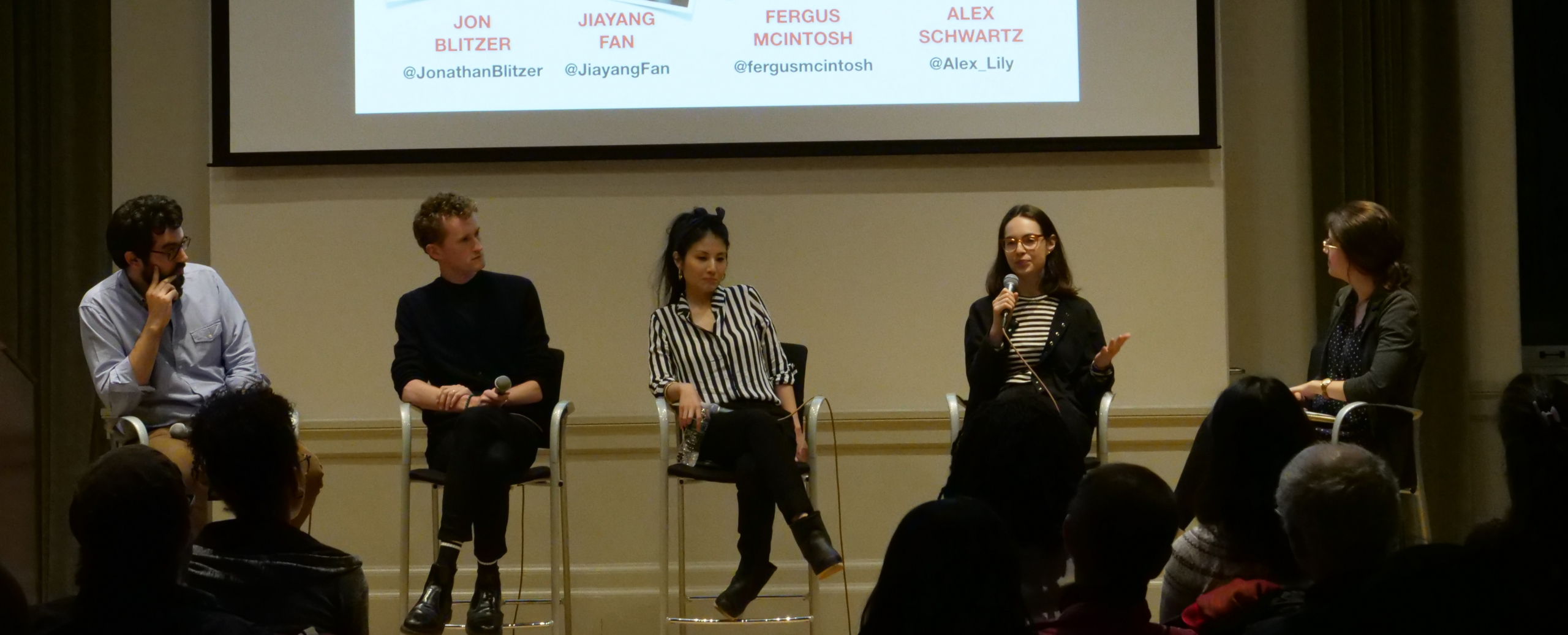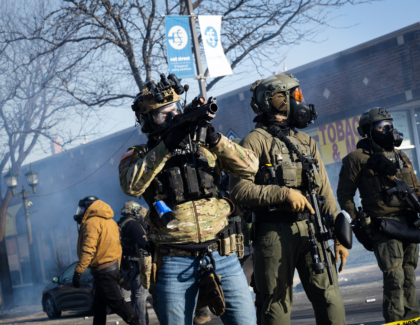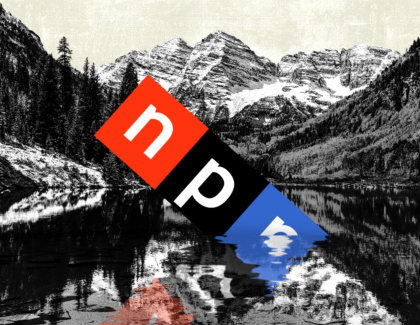Sign up for the daily CJR newsletter.
Fact, and the checking of fact, has dominated the public discourse in the three years since Donald Trump became president. Trump falsely cries “fake news.” The Washington Post tracks every documentable lie and misstatement the president utters: Trump has been caught lying or misrepresenting the truth well over 16,000 times since taking office. Fox News contributes to the ignorance loop by disseminating disinformation to millions of viewers.
The New Yorker has long been considered the standard bearer of fact checking. The magazine, founded in 1925, scrutinizes every word that appears in print and on the website, including poems, fiction, and captions. In 2012, CJR published a short history of New Yorker fact checking by Peter Canby, the magazine’s longtime head of checking. The piece derived from Canby’s 2002 appearance as a Delacorte Lecturer at the Columbia Journalism School. (Canby’s essay also appeared in The Art of Making Magazines: On Being an Editor and Other Views from the Industry, an anthology published by Columbia Journalism Review Books and Columbia University Press.)
On Feb. 4, four of Canby’s current and former checkers appeared in the first Delacorte Lecture of 2020, “Can You Get There from Here?: From Fact Checker to New Yorker Staff Writer.” Delacorte Fellow and CJR staff writer Lauren Harris moderated the panel, which featured Jonathan Blitzer, Jiayang Fan, Fergus McIntosh, and Alexandra Schwartz. Blitzer, Fan, and Schwartz became New Yorker staff writers after spending years as checkers; McIntosh is currently the magazine’s top checker, under Canby, and writes about music, travel, and culture.
Their conversation took place in the World Room of Pulitzer Hall. A slide, showing a marked-up page of McIntosh’s most recent checking assignment, a long fact piece on “overdose homicide” prosecutions, played overhead. The conversation has been edited for length and clarity. (Paige Williams)
Lauren Harris: Fact checking is particularly important in our current news environment, where fact-checking departments are rare; where a wide host of platforms publish unverified, misleading, or false information; and where politicians and political actors regularly disparage the press and say things like, “Truth isn’t truth.” Fergus, when you start to fact check a piece, you receive it; what comes next in the process?
Fergus McIntosh: I read it. I tend to start by pulling out all the people who are in it. There’s a balance between people who are going to be inaccessible and annoying to get in touch with, like public figures with PR people; then also people who might be traveling or who aren’t used to engaging with journalists.
Harris: It sounds like there are interpersonal skills that go into the process. Is that something you learn throughout the process of being a checker or is that something someone taught you?
McIntosh: I think some of it is, are you good at talking to people? Which hopefully, if you’re a journalist, you are.
Harris: What is a fact?
McIntosh: Presentation is quite a significant aspect. When people think about fact they tend to go more directly to “something that exists” or “something that happens.” But you have to think about how it’s being written about or shown, or how people are going to perceive it. Because if that’s not right, then however correctly you’ve identified something that happened, your presentation of it won’t convey an actual fact.
Alexandra Schwartz: When you get a proof you go through it and underline anything that is a fact. Is that the correct name? Is that the correct spelling? You’d go to dates, statements. You end up with a lot of the piece underlined. One thing about Fergus’s very beautiful checking proof—this is really an elegant proof—is that when you go through it you cross out with squiggly lines things that you verify, things that you don’t need to check. If someone has said something in a quote, that quote will get checked. Obviously that can get difficult when people think they’re being given a second chance to go over something they said to the journalist on the record; often, people will want to walk back what they said. Your first responsibility is to shore up the accuracy of the piece. Your second responsibility is to back up the writer.
Jiayang Fan: I started as a checker at the end of 2009, and I remember very vividly my interview with Peter Canby. During the interview he said that at the New Yorker there would be no upward mobility. From the magazine’s perspective, that’s prudent. And obviously not every checker wants to be a writer. I think most checkers do have an interest in journalism, culture, and politics, things that the magazine covers. Checkers have gone on to be writers but they’ve also gone on to law school and other grad school programs and professions not directly related to journalism. But what you learn as a checker is the importance of a rigorous reporting process. You understand very intimately how a reporter goes from having an idea in abstract, or a few characters in abstract, to filling notebooks with conversations, and learning about a phenomenon or event—and how that turns into a story.
Schwartz: People often think there’s a combative relationship between checkers and writers. I actually wrote about this play called “The Lifespan of a Fact,” which depicts that kind of relationship. I did not find that to be a very accurate depiction. Those of you who are writers, imagine someone seeing your draft; it’s a little bit like you’re letting someone into your bedroom and saying, “This is where I sleep.” And then you see that a sock is out and think, “This is really disgusting; I can’t believe I’m letting this person see this.” As a checker, you’re thinking, “Oh my God, this is how this person sleeps?” So you’re judging; but you’re also protecting. Writers have to put a lot of trust in checkers, and vice versa. We’ve all worked with writers who treated the checking process like an aggression, like, “How dare you question me?” Those are the writers who make mistakes. It’s the same as revision: writers who say that they don’t revise are automatically the writers I trust the least.
Jonathan Blitzer: When you’re checking a piece, you’re not just getting a contact list and the text of the piece in whatever early stage. You’re also inheriting all of that writer’s reporting materials—the full contact list, named and unnamed sources, and all of the materials that round out the way that a reporter has gotten to the bottom of certain scenes. It’s a real education, because you’re getting to see how a writer is reconstructing a moment. The most shocking thing for me, starting in the checking department, was seeing how some of my favorite moments in big narrative stories were actually kind of cobbled together from unexpected sources. I came into the job thinking that if you were going to tell a story about a drug chase in Mexico you had to have been there; but inheriting all these documents, and living with them the way the reporter has, you start to see that the reporter reconstructed that moment through a combination of this odd detail from a YouTube clip, or this partial interview with a Mexican official, or this photograph of the street where the drug bust occurred. One of the biggest lessons I’ve learned, going from checking to writing, was realizing how deep you can go without having necessarily been there or spoken to everyone. Some writers love to go deep on documents, and others like to do more of the work interpersonally.
Think about how intimate it is, as a reporter, to be sharing all of this material with someone else. A lot of the stuff I’ve been doing lately involves D.C. reporting—everyone is extremely skittish and in some cases it takes people months to talk to you, the reporter. Imagine, then, someone you’re talking to on an encrypted messaging app, who needed all sorts of coddling just to get to the table, and who will share information only with you on the precondition that it’s off the record or or deep background; there’s the uncomfortable moment at the end of that process where you have to explain that someone they’ve never met before is going to be calling and walking them through the most sensitive details that took me months to elicit, as a reporter.
Fan: Not long after I started checking (about eight years ago) there was a writer who said something a little sharply to me: I worked damn hard to get these quotes, please don’t fuck it up with your checking. At the time, I was a little taken aback; I thought, That’s presumptuous and imperious of you. I’m not sure the tone was helpful, but as a writer who has worked with skittish sources I’m sympathetic to that impulse, and to how hard writers work to gain the trust of a source. Some of the questions I ask are not questions I can ask after an hour of conversation—it’s after days, weeks, months of cultivating a person’s trust. I’ve grown more sympathetic to that writer’s—what it was was anxiety. She wanted the piece to be as good as possible.
Blitzer: As a checker, you’re having a conversation to confirm certain things; you have to make sure that your posture is not always so frontal and aggressive, while on the reporting side of a conversation you would have to sort of go in through the front door. When I was a checker I talked a lot, because you were always trying to assuage the source and go heavy on context. As a reporter, you generally try to shut up more. You don’t want to talk too much because you don’t want to step on the person you’re interviewing.
Schwartz: Writers often get away with using a document or something that’s been widely reported about a person, without necessarily bringing it to that person. The second reason that New Yorker fact checking works the way it does—the first being to verify information—is to kind of warn people about what is going to come out, about them. It’s a way of absorbing the shock in advance. You don’t want people learning the brutal truth by opening the magazine. You want to give them a chance to respond. And frankly to do a lot of damage control, which is another huge checking job. If something’s being reported everywhere, it still may not be right.
Harris: I’m sure there are many people in the crowd who have written for outlets without fact-checking departments. I’m wondering if you can offer some advice on skills that you can apply from fact checking to ensure that your reporting is as strong when you’re not being fact checked as when you are.
Fan: One, don’t forget the easy stuff like names, dates. Nothing makes you look as unprofessional as misspelling someone’s name in a printed piece. You have the byline. You may think, I got everything else right but forgot that “Kathy” was with a “K.” But it does cast doubt in a reader’s mind if you were careless. Two, with more controversial or investigative pieces, it’s always helpful to think in terms of how your detractor might think. When you’re presenting a story, think about that Twitter troll who’s out to take the story down. What are the easy hits? Thinking about that helps me ask, Is this story as comprehensive as I would like it to be?
Blitzer: My advice would be to treat the final phase of your reporting as fact checking. Look at your piece almost as if it were someone else’s work that needs intense, rigorous verification. My argument would be to fold what we’re calling checking into the reporting process: as a reporter, you need to do that for yourself anyway. In this climate, given how skewed a lot of the information is by the time it reaches you, you need to make sure you haven’t blundered into an error. Put yourself in the role of skeptical reader and poke holes in your own story. What checking also prepares you for is how strange it is for a journalist to approach a person and ask questions. Checking helps you understand just how jarring the interaction with a journalist can be for normal people, out in the world.
Harris: What are some of the barriers to checking fact?
McIntosh: One of the biggest challenges is that you’re expected to be able to cover anything. That’s probably true of anyone wanting a magazine career. I’ve worked with writers who were outside their intellectual comfort zone—which is impressive. But they’re then turning to me and saying, So, you understand computer data, right? Educating yourself really fast can lead to mistakes. It’s important to not get overconfident.
Harris: Is there anything that’s uncheckable? Or if it’s uncheckable does it not run in the magazine?
McIntosh: That is a good question. You’d be amazed by what can be checked. One interesting category of fact is people’s thoughts. You’ve got to be really careful about that.
Fan: I remember an instance where I wrote that a sense of malaise had come over me during an interview. The checker was like, “Do you have documentation for that?”
Has America ever needed a media defender more than now? Help us by joining CJR today.







